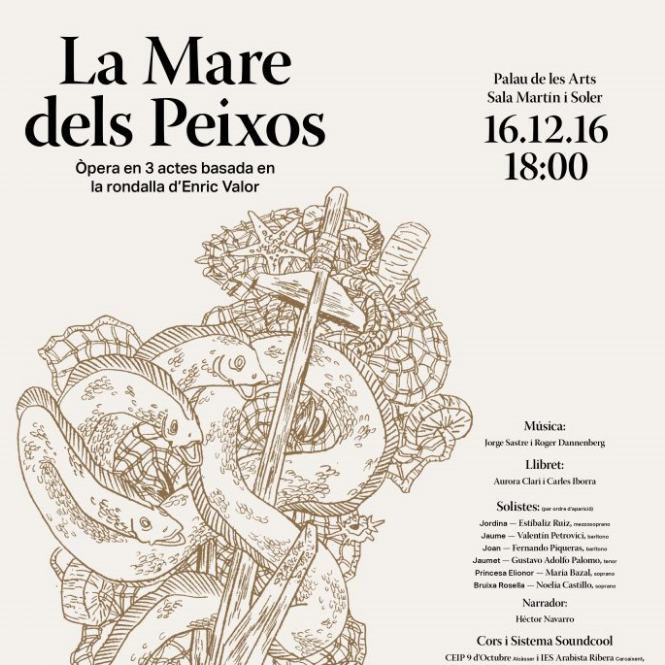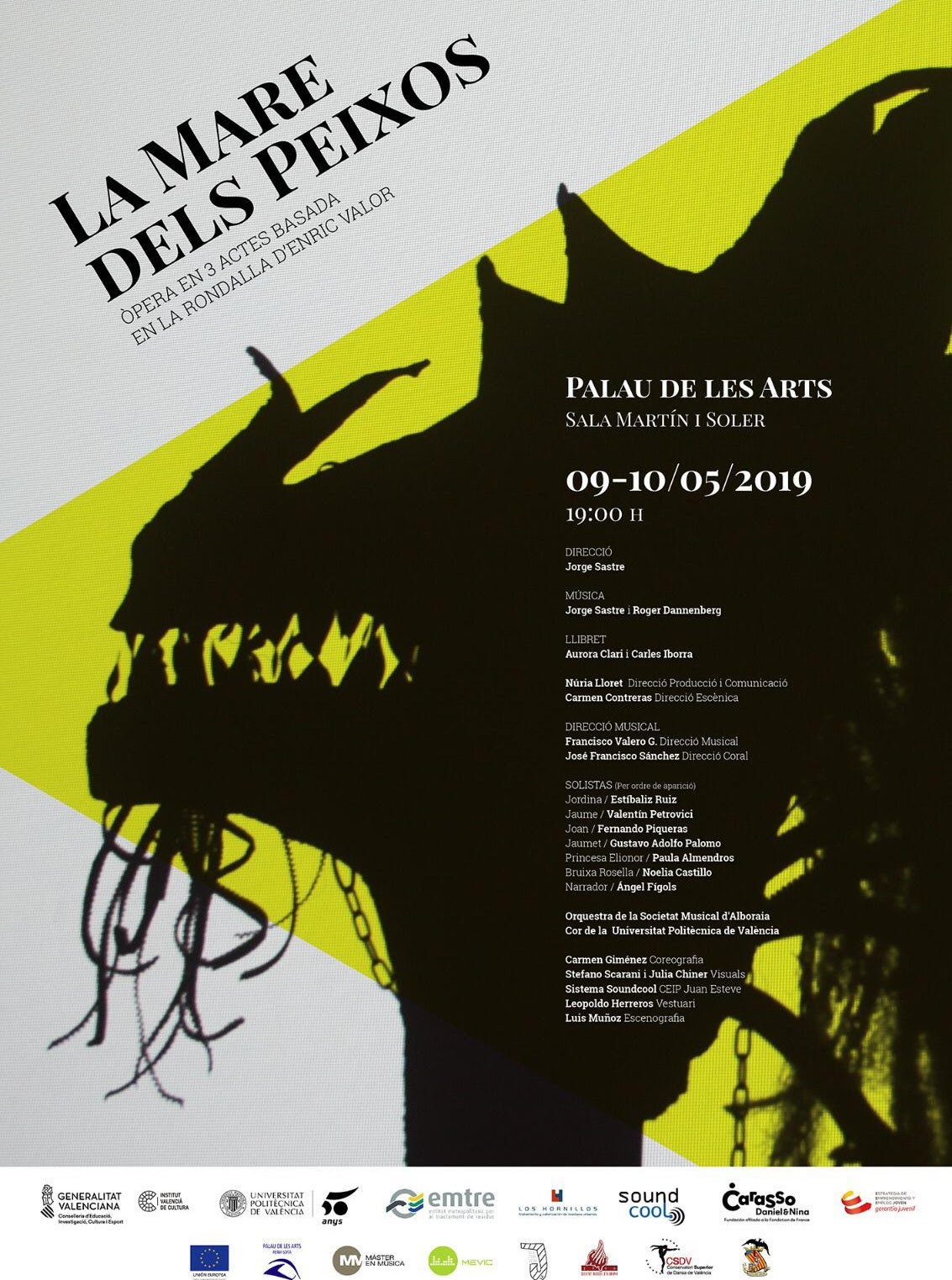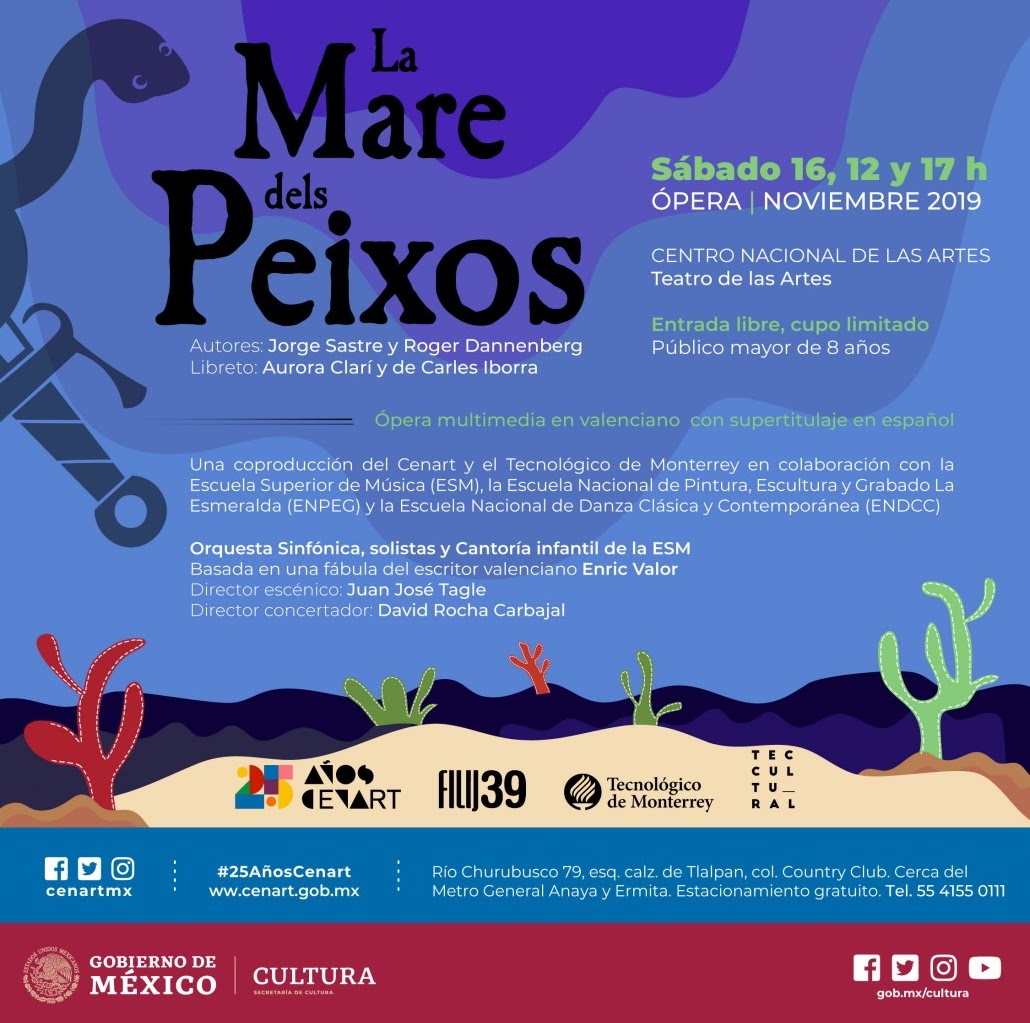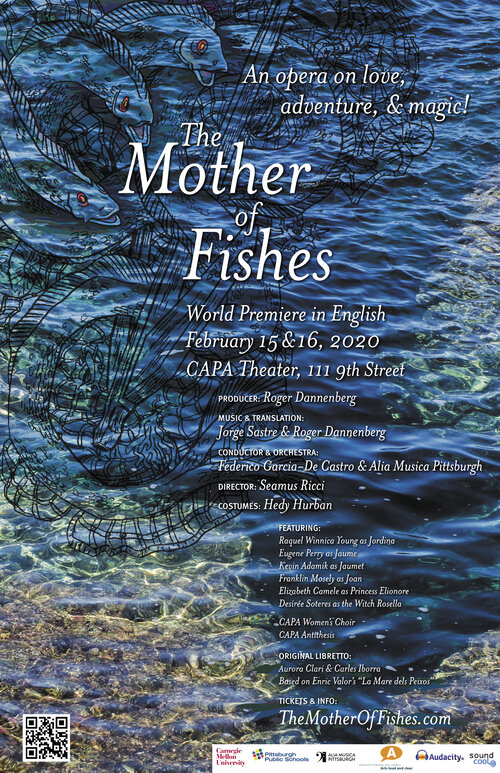Act I.
A fisherman, Jaume, and his wife, Jordina, live in Dénia. They are happy and love each other. Still, they long for children. Jordina dreams that one day, an elegant lady dressed in white turns all of Jaume’s fish into children. When morning arrives, Jordina tells Jaume about the dream. He protests that they have everything they need, but who knows? Perhaps he will catch children today! Jaume sets out in his boat, casts his net, and pulls in a strange brightly colored animal with three heads and two tails: the Mother of Fishes. She tells him to cut off her three heads. His wife should eat one, the horse and dog should eat the others, and the tails should be hung on the lemon tree in their garden. In time, the dog has two puppies, the mare has two foals, the tails turn into swords, and Jordina has beautiful twin boys, Jaumet and Joan (Joe-ahn).
Act II.
Twenty years later, Juamet is feeling adventurous and wants to leave home. Joan tells his mother not to worry. Jaumet will take his horse, his dog, and one of the two swords. If anything happens, Joan’s magic sword will rust, giving warning that something is wrong. In his travels, Jaumet learns that a seven-headed dragon has terrorized the land of Duke Frederic, who must sacrifice a subject every day to appease the dragon. Bad luck befalls the Duke’s family when his daughter Elionore is chosen for the dragon. The Duke offers his daughter’s hand to anyone who can kill the dragon. Jaumet encounters the dragon and fights courageously with his magic sword, killing the dragon. He cuts the seven tongues of the dragon as proof and heads for the castle. The town celebrates Jaumet’s triumph, and he and Princess Elionor are married. But Jaumet is curious to explore his new kingdom, and sets off again. Arriving at a large house, he is attracted by the songs of goldfinches. Invited into the house, he is tricked by a witch and turned into stone.
Act III.
Back in Dénia, Jordina senses something is wrong, which is confirmed by the rust on Joan’s magic sword. Joan sets out with his horse, his dog and his sword to find his brother. He arrives in Castalla where the Duke and Princess tell him that Jaumet has disappeared. The next day, Joan follows the path of his brother and soon arrives at the house of the witch. The witch begins to put Joan into a trance, but Joan calls in desperation to his dog, who jumps and takes the magic wand from the witch. As she loses her power, Joan cuts off her head, her spell is ended, and Jaumet is freed from her curse. The brothers return to Castalla. Elionore encourages Joan to stay, but Joan wants to carry on the traditions of his family in Dénia. The ghost of the witch appears, threatening a terrible curse on all. The men vow to fight, but they are powerless against the might of the witch. Then, Elionore stands up to the witch, claiming even greater power. She has saved the tongues of the dragon, which have magical powers of fire, and she banishes the ghost forever. Peace returns, and everyone sings praise to the Mother of Fishes and her gifts of life and happiness.



